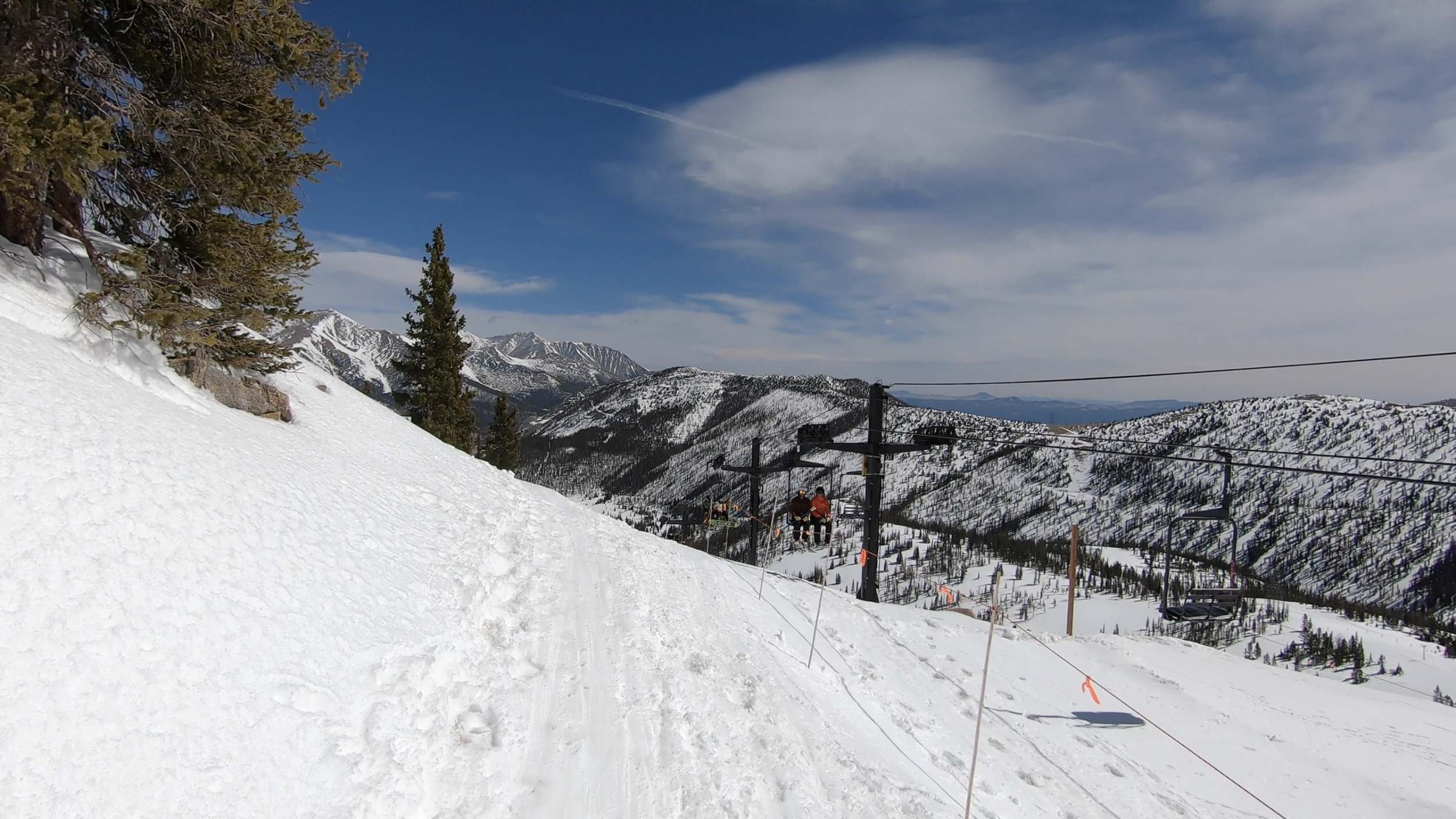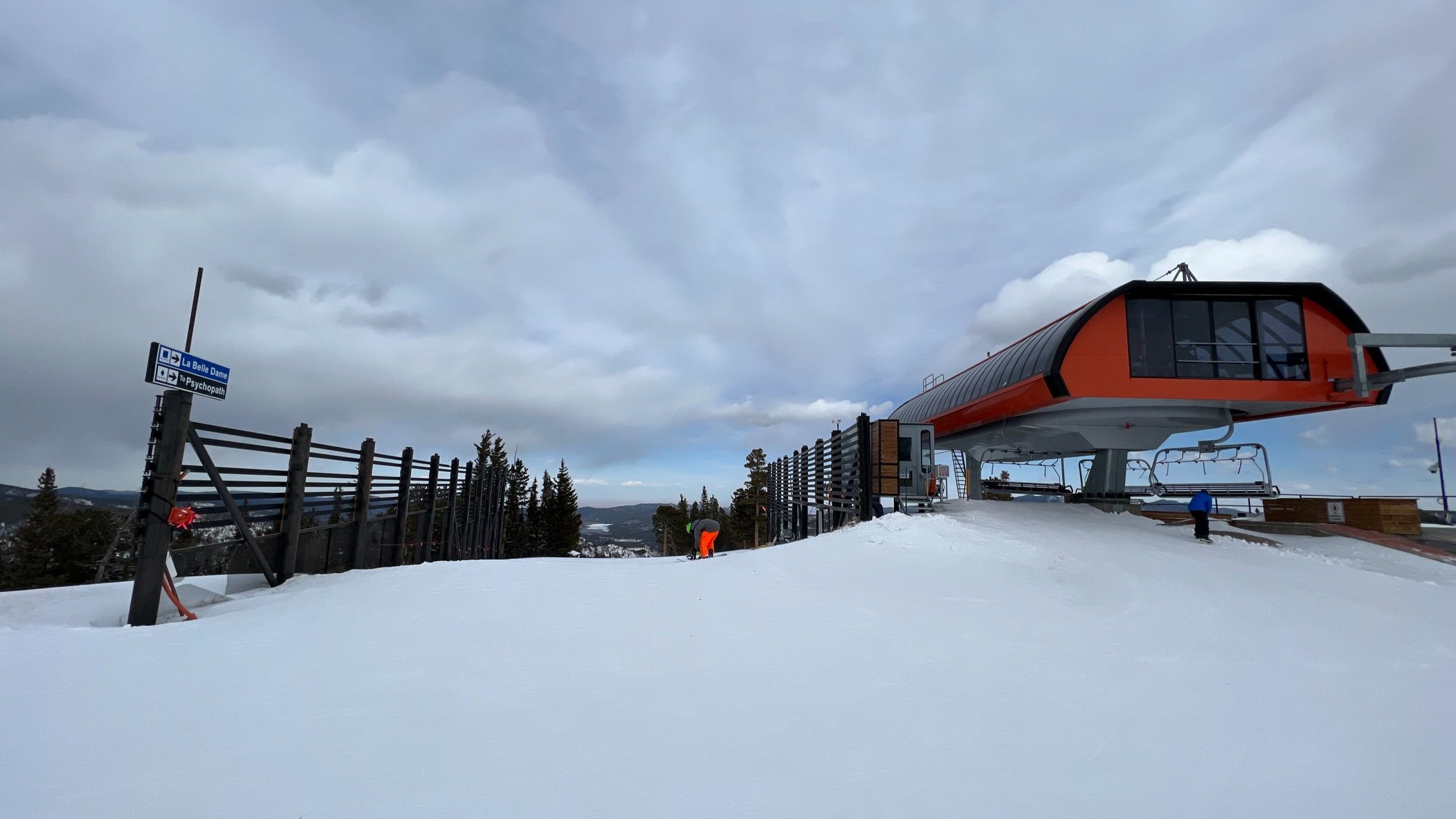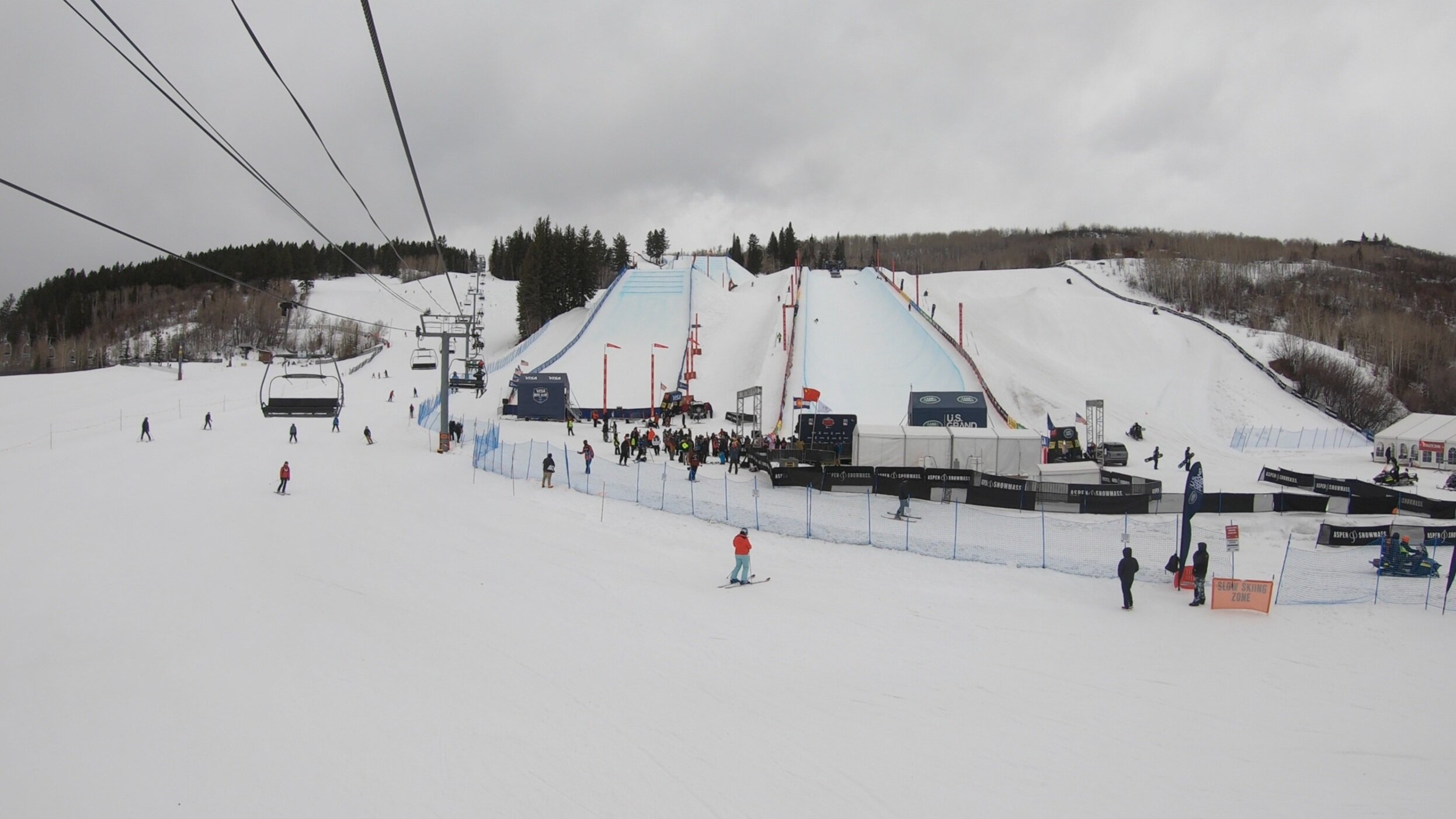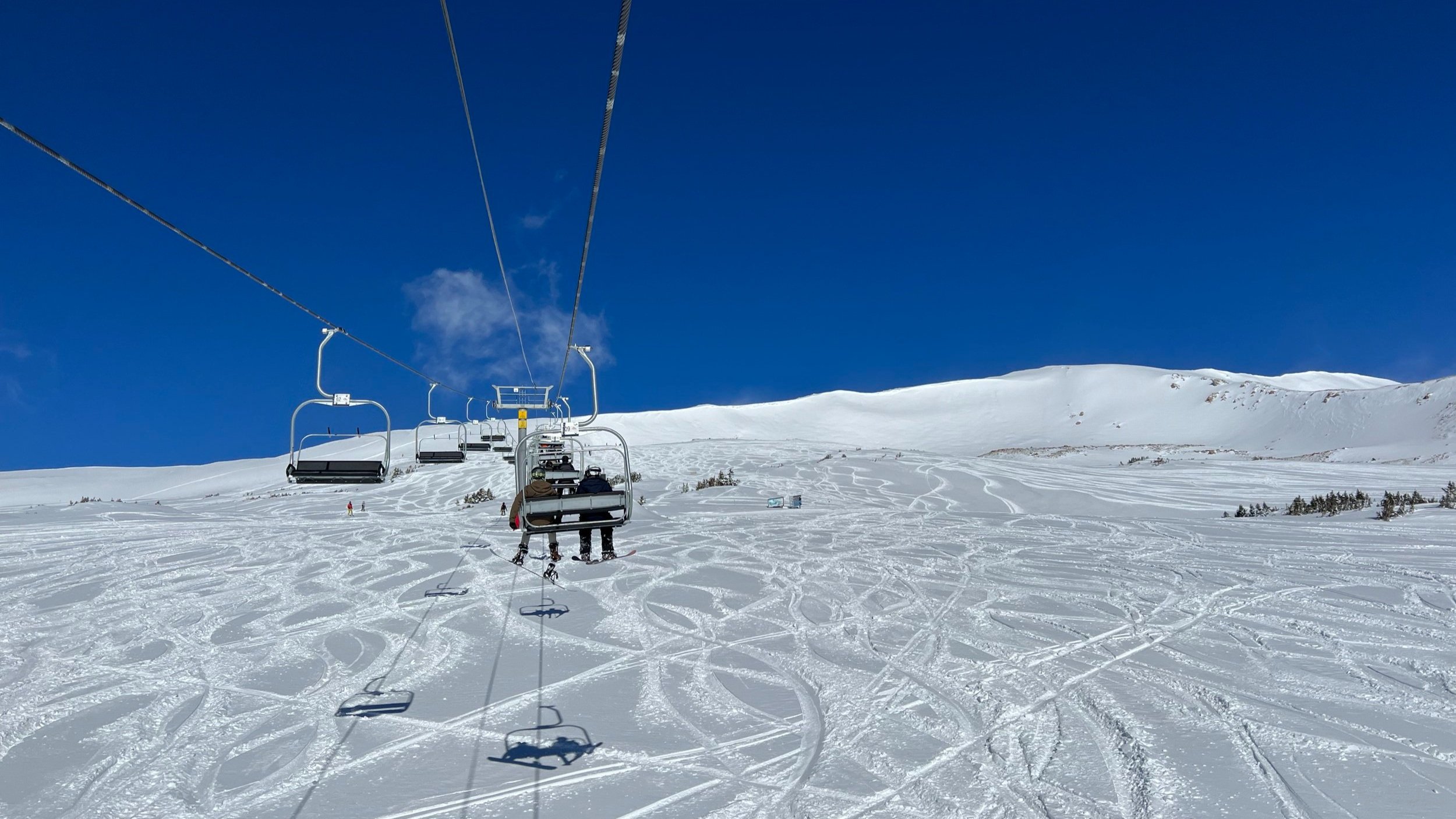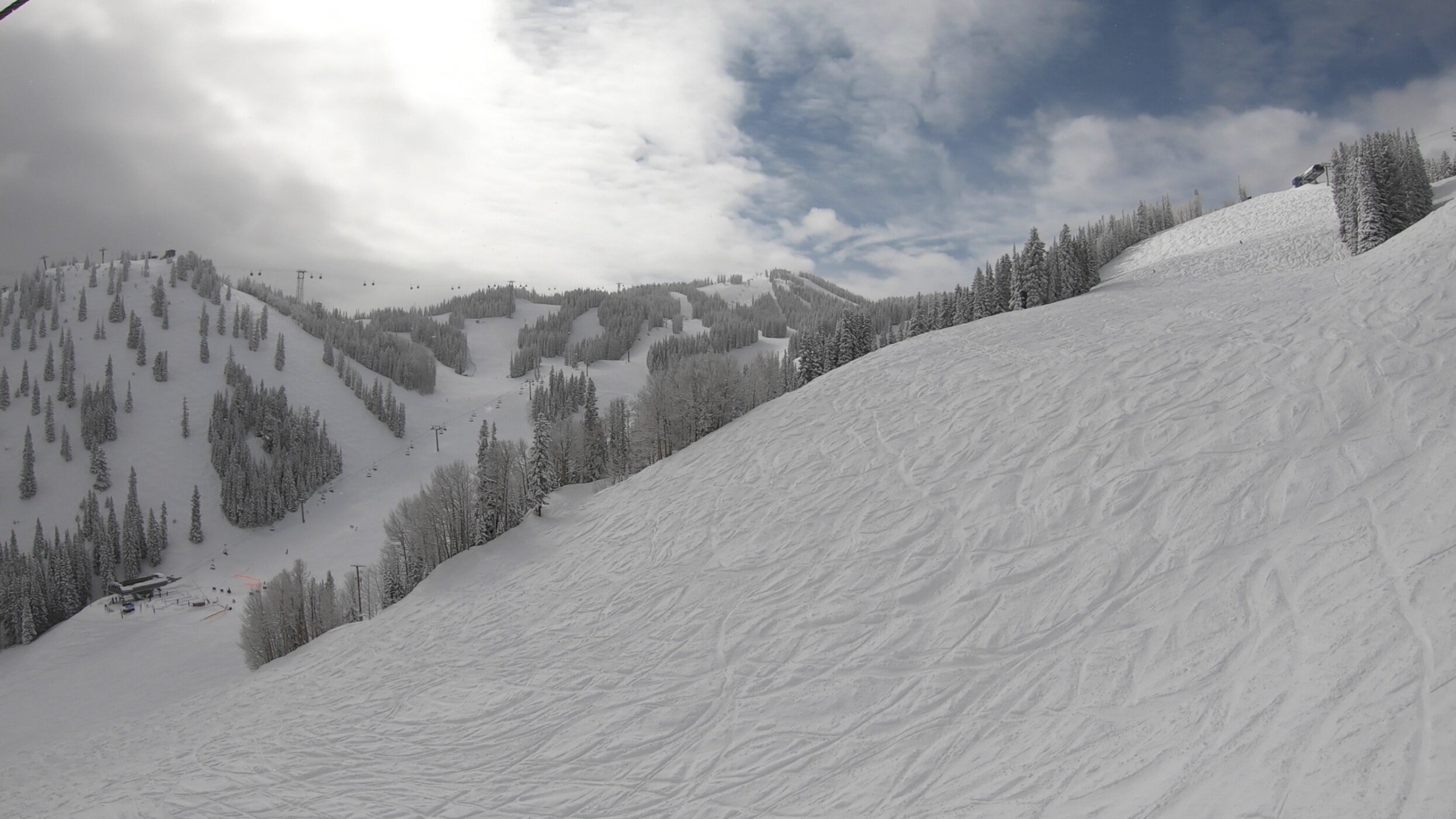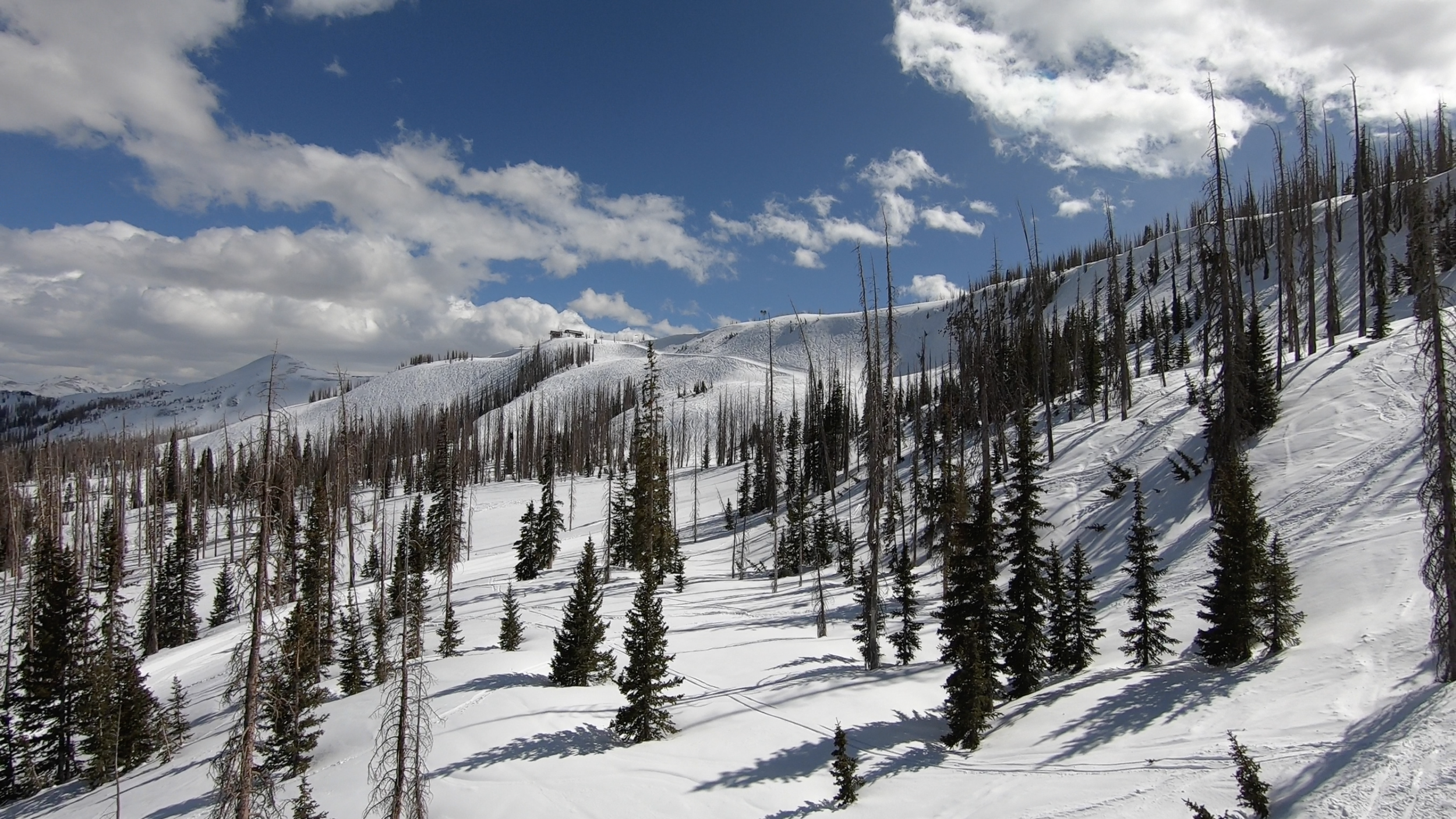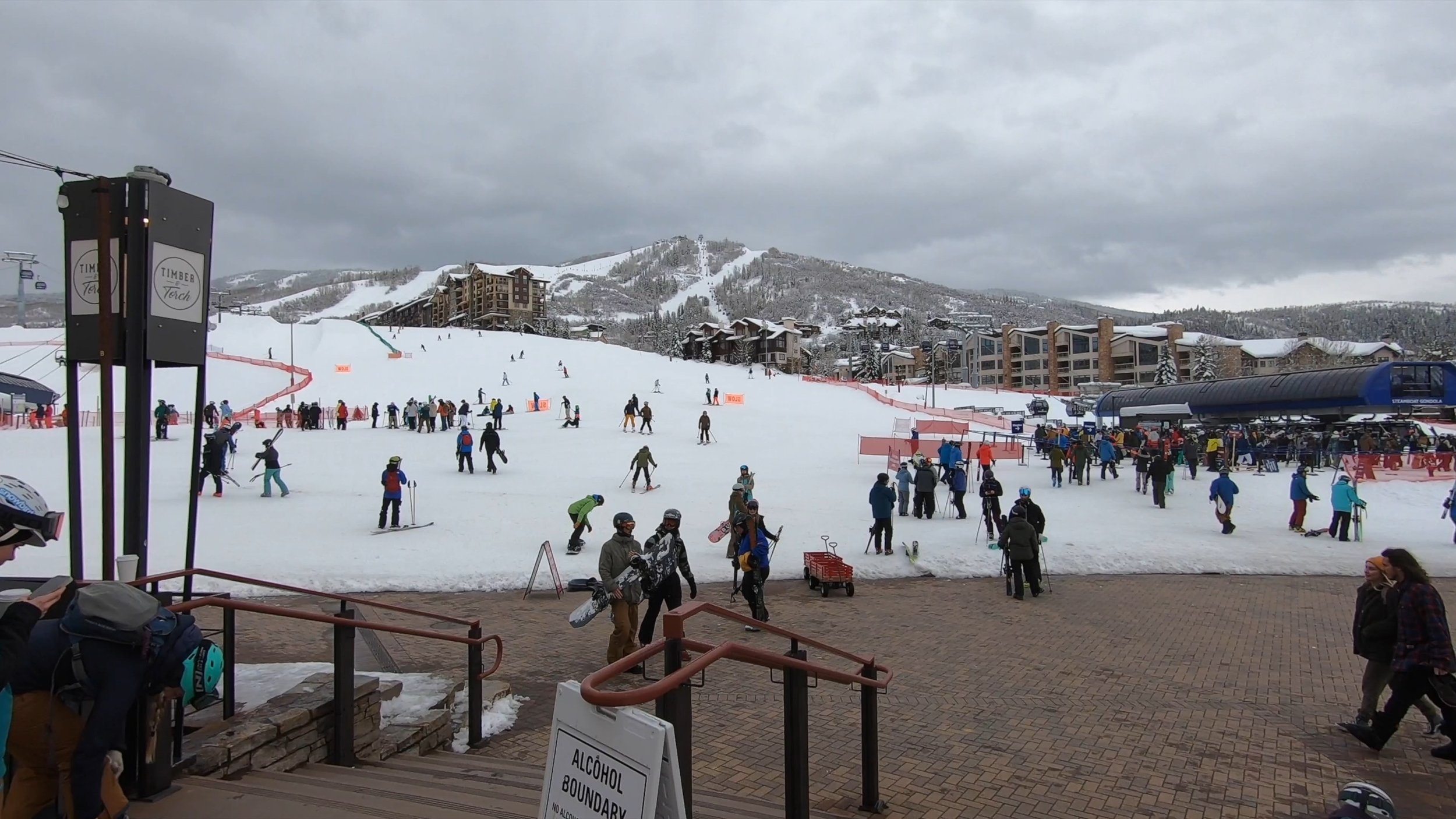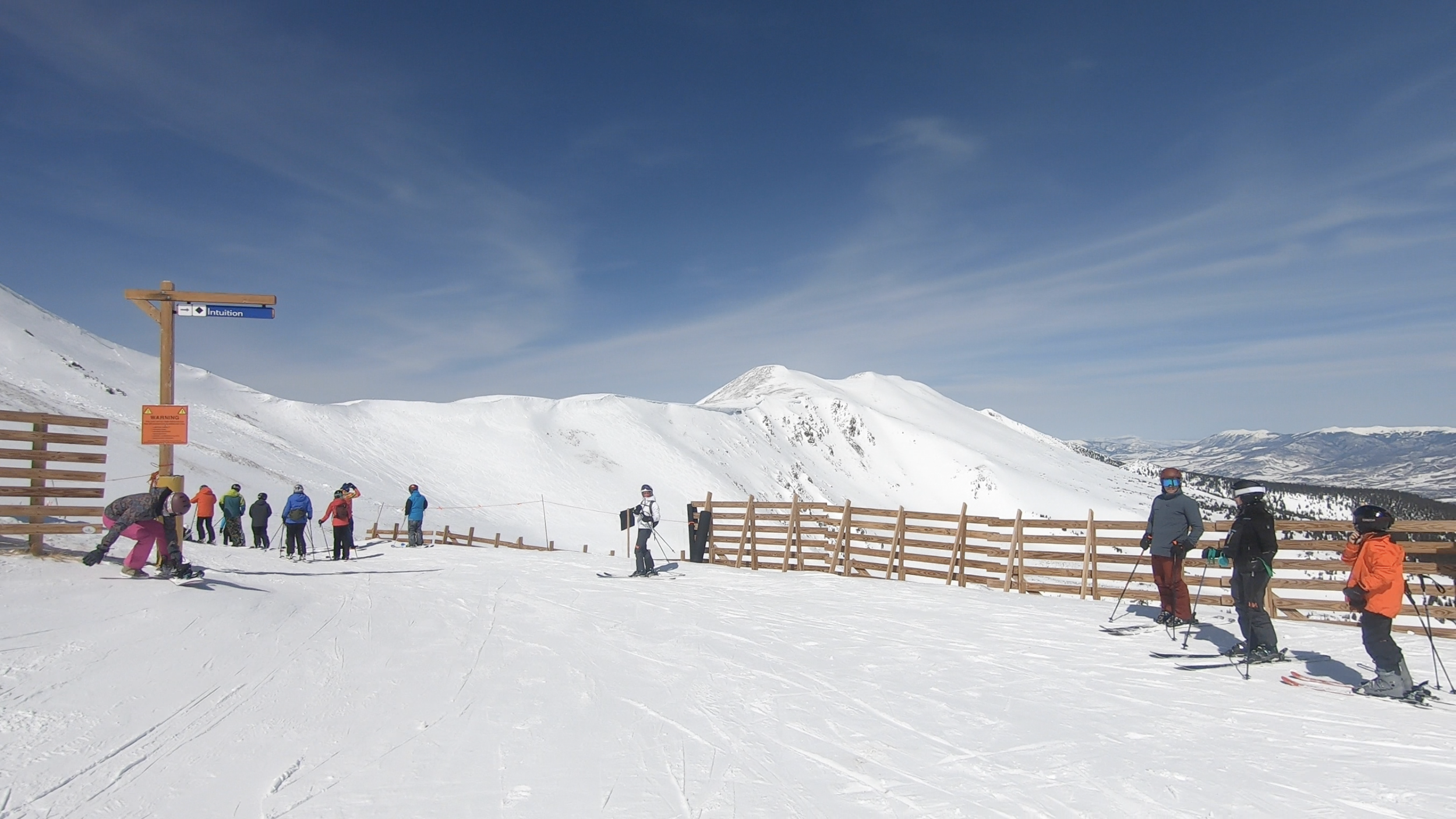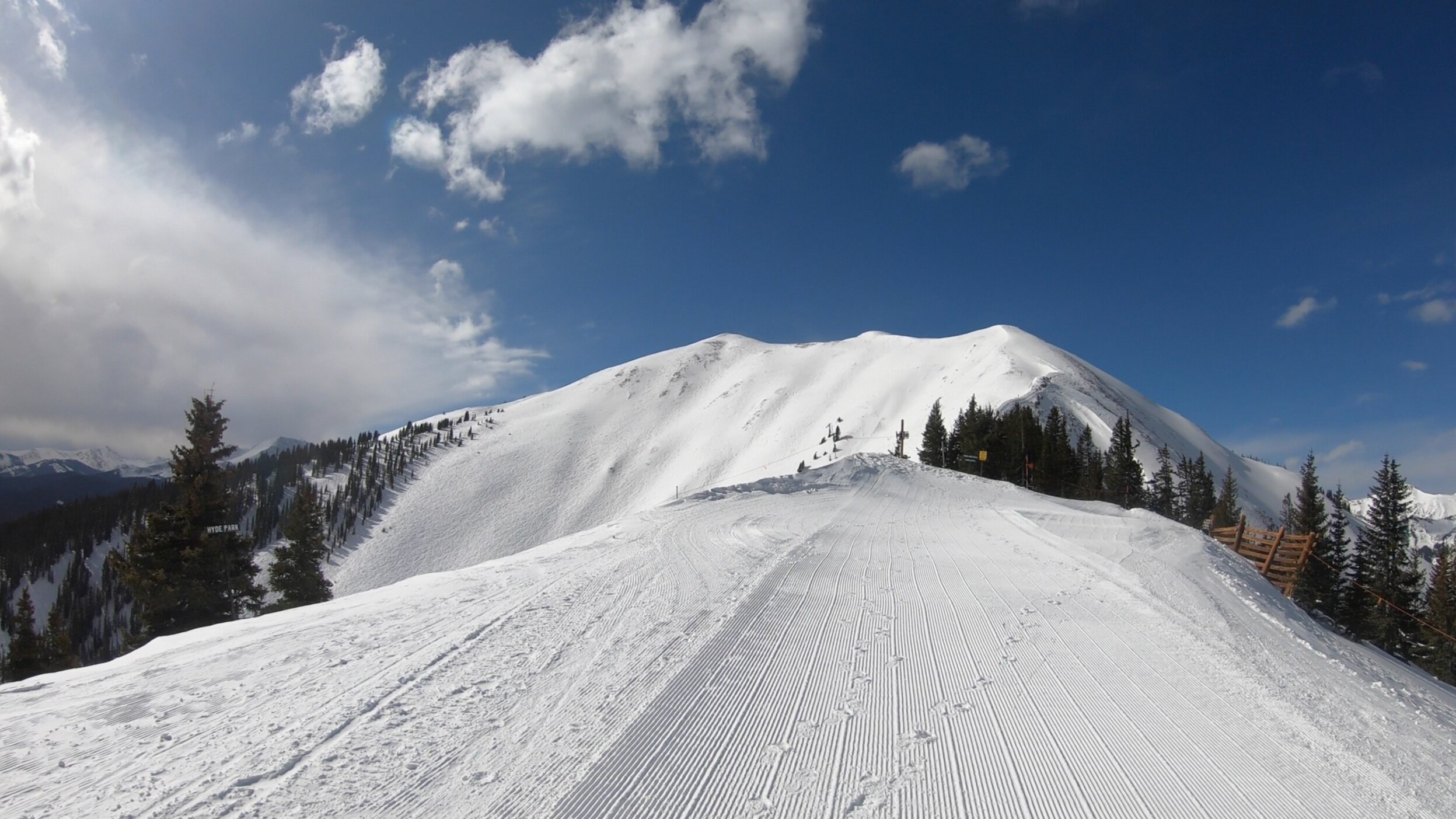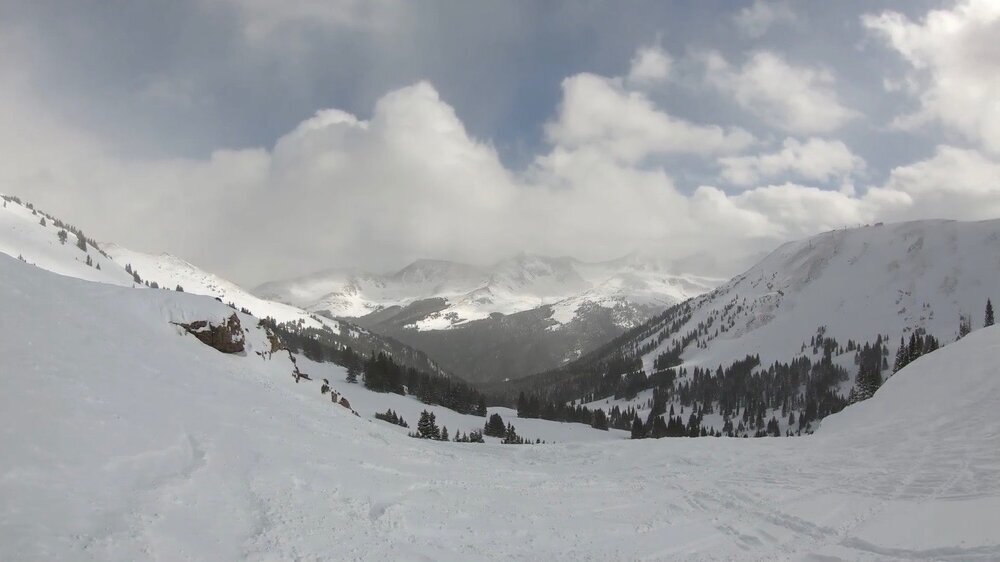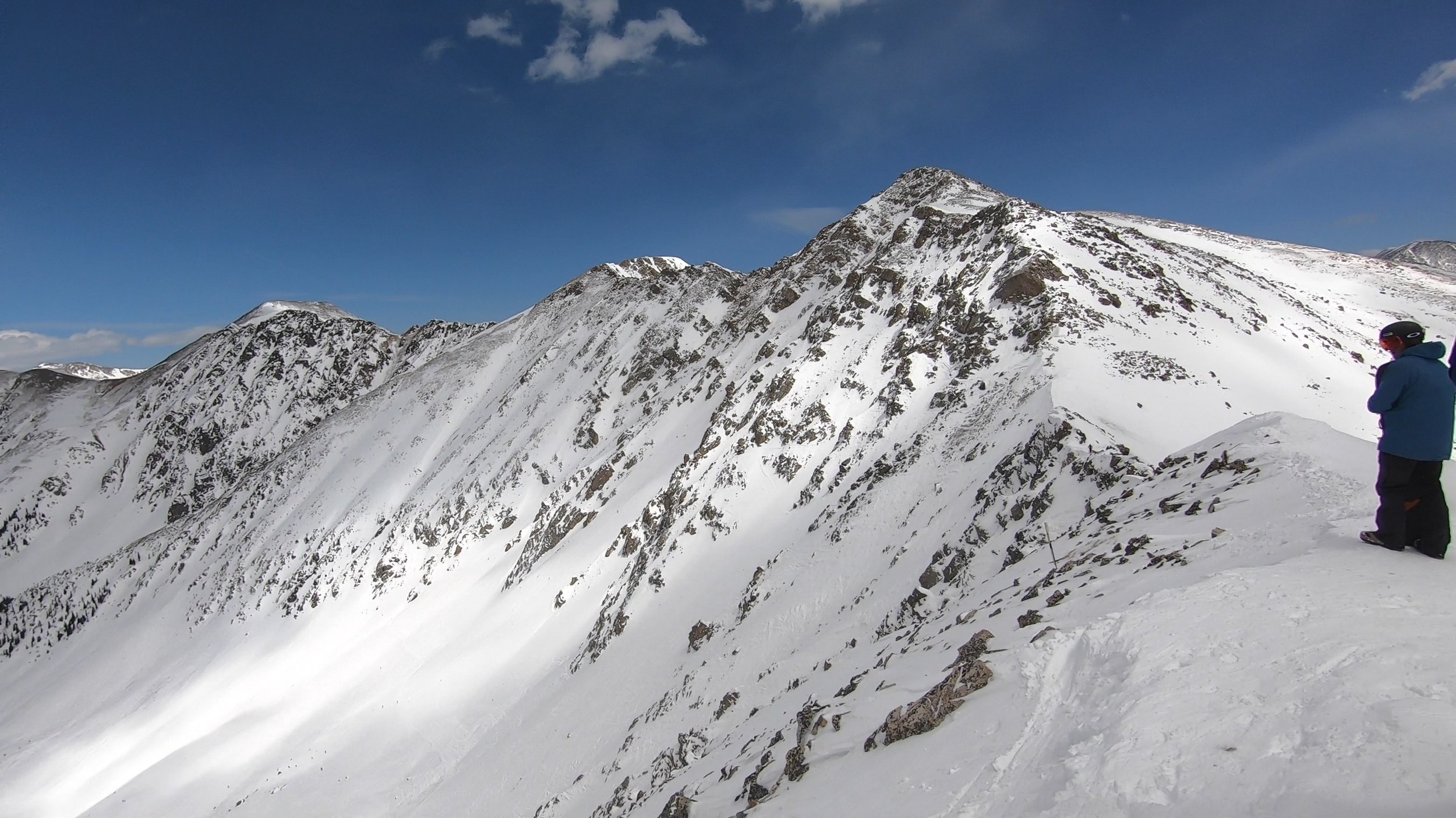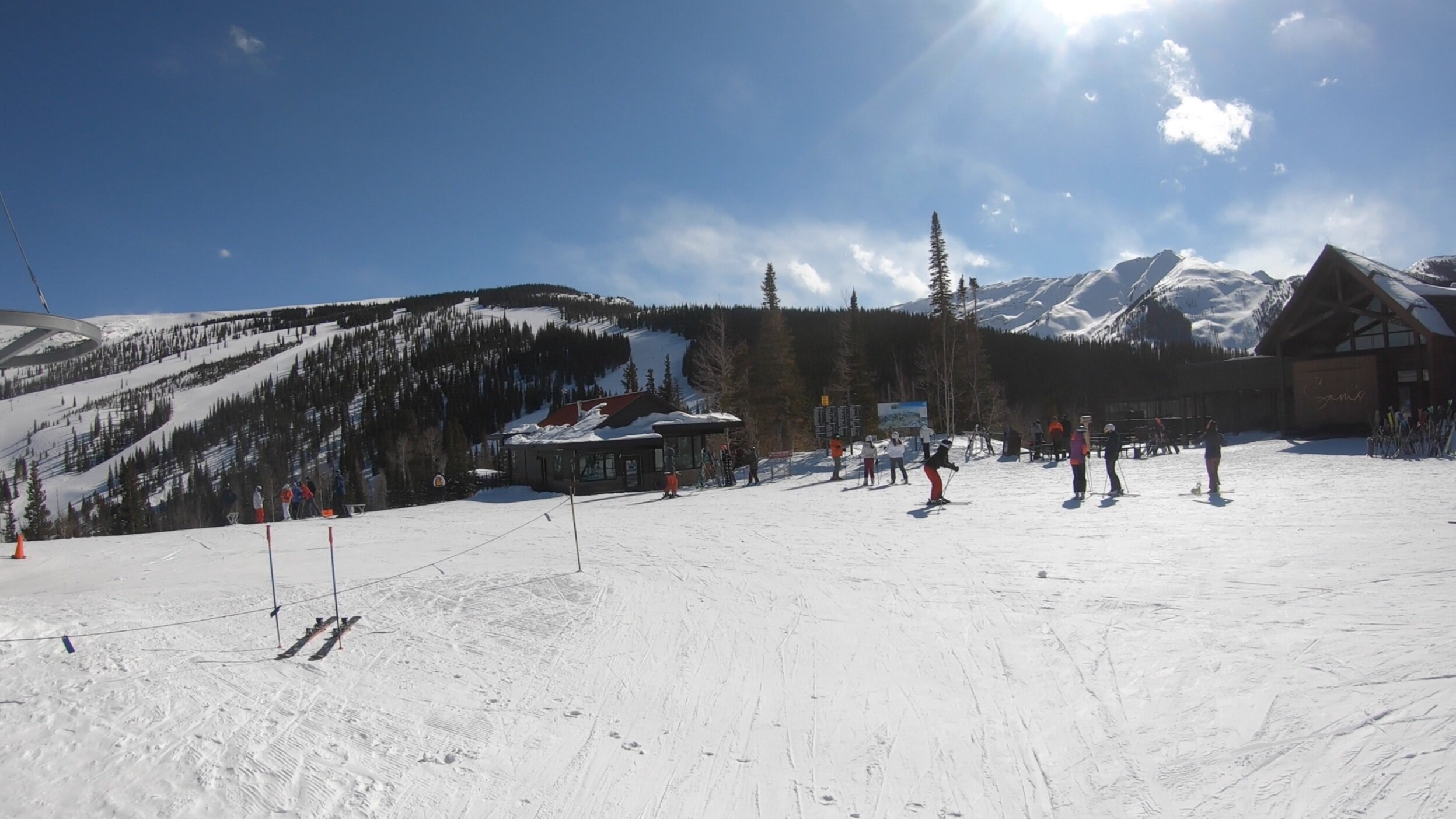Colorado Ski Resorts Ranked: 2023-24
When you’re booking a destination ski trip, Colorado is almost the default choice. The state is a leader when it comes to fly-to ski resorts, offering an almost dizzying array of options with massive footprints, varied terrain, and top-notch ski towns.
But of Colorado’s major destination ski resorts, which ones are the best, and how do they compare in terms of overall mountain experience? In this article, we’ll rank the Colorado ski resort destinations in order of their overall mountain experience, and we’ll highlight the strengths and weaknesses of each one.
Before we jump in, we’ll caveat that Colorado is an incredibly cutthroat region, and just because a resort is at the middle or bottom of this list doesn’t mean it’s bad. In fact, 5 of the top 10 resorts score within a single point of each other in our ranking criteria. And we also want to caveat that we’ll be considering the four Aspen Snowmass mountains as wholly separate resorts in this article, as they’re physically separate areas that visitors probably won’t be jumping between in a single day. Enjoy!
#19: Monarch
Coming in at the bottom of this list is Monarch, a ski area that’s less of a destination and more of a regional hill for those in central Colorado. Monarch feels like it’s preserved in a time capsule, with vintage lifts, very little buildup, and excellent views of the Continental Divide. The mountain also stands out with widespread glade terrain, and if you’re willing to hike, there’s a pretty solid expert zone.
However, Monarch is just way too small to put up a serious fight against the better mountains on this list. With just a 730-acre skiable footprint and a diminutive 1,200-foot vertical drop, the ski area is dwarfed by just about every in-state competitor, and even some East Coast mountains. And while there are some solid accommodations nearby, Monarch does not offer any lodging directly on site.
Monarch is a great town hill, but it’s just not substantial enough to make for a reasonable fly-to vacation. And with a location three-and-half hours away from Denver, absolutely no one from out of state should be hopping on a plane exclusively to ski here.
1-day lift ticket prices are reasonable for off-peak days, but even though tickets are still much cheaper than the best mountains on this list, the mountain is not the best value for the experience if you go on a peak weekend or holiday.
1-Day Ticket Range (Core Season):
Adult 18-61: $79-$139
Child 7-12: $59-$99
Teen 13-17: $69-$109
Senior 62-68: $69-$109
Child 0-4, Senior 69+: $5
#18: Eldora
Coming up next on this list is Eldora, which is the closest real ski resort to Denver. Eldora is really convenient for those in the city and its northwest suburbs, and it sits on an access road that doesn’t require dealing with the notorious Interstate 70 traffic. Eldora’s high elevation allows it to preserve snow well and affords it awesome views, and the resort stands out with an extensive, progression-oriented terrain park setup.
However, Eldora is no match for its competition when it comes to snow accumulation and terrain. Eldora’s 680-acre footprint is much smaller than the destinations, and while the resort does offer genuinely good intermediate and advanced terrain, beginner terrain is surprisingly lacking, which hurts family-friendliness. And while Eldora rarely experiences significant lift lines, it lacks on-site lodging and offers extremely limited parking, meaning would-be guests will need to arrive very early or risk being turned away.
1-day lift ticket prices significantly undercut bigger competitors, although during peak times, it’s still pricey for what you get.
1-Day Ticket Range (Core Season):
Adult 16-69: $139-$179
Child 5-15: $109-$139
Senior 70+: $109-$139
Child 0-4: $29
Other Access Options: Ikon Full, Base, and Session Passes; 4-Day Pack
#17: Buttermilk
Next up is the first Aspen Snowmass entry on our list, beginner-oriented Buttermilk. Buttermilk is Aspen’s smallest ski mountain, but it offers family-friendly terrain, similar high-quality snow to its sister areas, and high-speed lift service across everything but the bunny hill. Buttermilk also features a world-class terrain park setup, and the mountain often hosts professional, televised competitions such as the X Games.
However, if you’re not a beginner or a tenured freestyler, there’s very little reason to check out Buttermilk. The resort’s small footprint and vanilla terrain put it at a substantial disadvantage versus the other mountains on this list, let alone every serious destination in the country. Ultimately at Buttermilk, you’re getting the Aspen vibe without the Aspen terrain.
While Buttermilk may appeal to less-experienced Aspen travelers, its 1-day lift ticket price matches the same two-hundred-dollar-plus rate as its other Aspen Snowmass counterparts, making it perhaps the worst value ticket of any resort we’ve ever visited. At least if you have a full Ikon Pass, it does include access to the full Aspen Snowmass suite, but that’s not cheap either.
1-Day Ticket Range (Core Season):
Adult 18-64: $204-$229
Child 5-17: $144-$169
Senior 65+: $144-$169
Child 0-4: Free
Other Access Options: Full Ikon Pass; Mountain Collective
#16: Purgatory
Located in the San Juan mountain range of southwest Colorado, Purgatory is much more remote than most of the other destinations in the state. The resort’s unique location affords it a genuine local feel and stunning surrounding scenery, and its top-to-bottom green terrain, high-speed lifts, and free lift tickets for kids 12 and under make it a standout for families.
However, Purgatory’s 2,000-foot vertical drop falls quite short of the other mountains on this list. And while the trail distribution may be family-friendly, the resort’s wide layout makes it a pain to get around, especially when getting to and from the back side. Finally, while Purgatory’s elevation allows it to preserve snow well, the resort doesn’t see the same quantity of accumulation as its more northern competitors, making for risky early-season conditions.
Purgatory isn’t a bad mountain, but it’s probably best for those in southwest regional cities rather than true destination-goers. 1-day adult lift-ticket rates are reasonable, and paired with the free kids access, this can mean hundreds in saved money versus other resorts in the state.
1-Day Ticket Range (Core Season):
Adult 13-74: $39-$104
Child 0-12: Free
Senior 65+: Free
#15: Loveland
Our first I-70 mountain on this list, Loveland is absolutely wild in that it actually sits on top of this major interstate highway, with the highest vehicle traffic tunnel in the world cutting directly through this high-alpine ski area. The resort specializes in bowl terrain, with an array of above-treeline slopes for all abilities. Loveland also sees heavy snow accumulation thanks to its Continental Divide location, and can be awesome on powder days. And since it’s technically east of this divide, Loveland is slightly closer to Denver than most of its competition.
But Loveland is much more of a ski area than a true resort, and it lacks some of the creature comforts that the best mountains in the state provide reliably. First off, all but one of Loveland’s lifts are slow, making for lengthy rides—and ones that can be especially uncomfortable in the highly-exposed, wind-prone high alpine. In addition, Loveland’s limited below-treeline terrain means that it can be hard to find trails that aren’t windswept when it’s been a few days since the last snowfall. And finally, Loveland doesn’t offer any on-site accommodations—or any hotels within several miles of the ski area—so it’s tough to plan a true destination vacation there.
Loveland’s lift tickets are reasonable as far as Colorado ski resorts go, ranging between $83 and $119 for one-day adult access depending on demand. But you won’t get the slope reliability, high-speed lifts, and same skiable footprint as many of the other resorts just a few miles further west.
1-Day Ticket Range (Core Season):
Adult 15-59: $83-$119
Child 6-14: $40
Senior 60+: $83-$109
Child 0-5: Free
#14: Aspen Mountain
Aspen Mountain, known informally as Ajax by locals, is the town hill of Aspen proper, sitting literally steps from the city streets. Ajax boasts a commendable 3,000’ vertical drop, which is up there with the best in the state, and it offers a solid mix of intermediate to expert terrain—including some of the most gnarly lines in the state if you know where to look.
But Aspen Mountain is exceptionally narrow—in fact, so much so that it ends up only offering a 675-acre footprint, multiples lower than the best options in the state. The mountain is getting a long-anticipated 150-acre expansion for the upcoming season, but it’ll still leave Ajax quite a bit smaller than most competitors. And across the terrain it does offer, the lift system is unintuitively designed, making it really tough—or at the very least, undesirable—to lap the bottom two-thirds of the resort.
So while Aspen Mountain offers the the luxury atmosphere its namesake is known for, it falls short in available skiable terrain and resort logistics compared to the mountains higher up on this list. Like the other Aspen Snowmass mountains, Ajax’s adult lift tickets go for over $200 per day, so you’ll be paying a pretty penny for these townside slopes.
1-Day Ticket Range (Core Season):
Adult 18-64: $204-$229
Child 5-17: $144-$169
Senior 65+: $144-$169
Child 0-4: Free
Other Access Options: Full Ikon Pass; Mountain Collective
#13: Wolf Creek
Coming up next on this list is Wolf Creek, which sits in a very remote southern Colorado location hours away from the closest international airport. Wolf Creek stands out for its snow, often seeing the best accumulation totals in the state and experiencing heavy snowstorms as early as October. The resort rarely sees crowds, offers solid glade terrain, and despite its remote, independent operation, actually has multiple high-speed lifts.
However, Wolf Creek’s 1,600-foot vertical drop pales in comparison to all serious destination competitors. While the resort’s footprint is decently wide as far as they go, some of its beginner terrain is questionably placed, with intermediate runs required to get both to and from the furthest green trails. Additionally, there’s no on-site lodging—or for that matter, any accommodations within 20 miles of the mountain.
Ultimately, Wolf Creek isn’t tall or big enough to beat out the rest of this list in overall mountain experience. But if you’re looking for an early-season powder day, it might be the only game in town. Wolf Creek also stands out for its lift ticket rates—with prices topping out at just $95 for one day of access, Wolf Creek is one of the best values in the state, if not the country.
1-Day Ticket Range (Core Season):
Adult 13-64: $85-$95
Child 6-12: $42-$52
Senior 65-79: $54-$64
Child 0-4: $6
Senior 80+: Free
#12: Steamboat
The northernmost mountain on this list, Steamboat stands out thanks to its remote location and lively nearby town. The resort specializes in glade terrain, with some of the best skiable aspen trees in the country. Steamboat also sits in a different weather system than the Front Range resorts, meaning it can see snowstorms that pass over the other popular destinations.
But at least as of right now, Steamboat just suffers from a number of shortcomings and logistical issues that hold it back against the best in the state. First off, besides the glades, Steamboat’s terrain footprint just doesn’t stand out all that much—the bowls are small and underwhelming, the expert terrain is really hard to reach, and the flat summit areas lack the same striking aesthetics as many competitors. On top of that, Steamboat’s lift logistics can best be described as frustrating, with all access to this massive resort coming from one base area, and serious lift lines building up on peak weekends and holidays. However, it is worth noting that two upcoming projects—a new gondola and an expert terrain expansion—promise to alleviate many of these issues, with both set to debut for the upcoming 2023-24 season.
So Steamboat is an enjoyable resort for those who like glade skiing and lively mountain towns, but its terrain and on-mountain logistics have historically fallen short compared to the other serious destinations. The resort has some ambitious capital projects in the works, but based on this past season, we’d take any major Front Range mountain over Steamboat for an in-advance vacation.
Unfortunately, lift ticket rates are among the priciest in the state, peaking at a staggering $275 for one day of access. Even with the resort’s upcoming improvements, these prices remain exorbitant. As a result, potential guests will either want to scoop up an Ikon Pass before December—or really think hard about whether the resort’s strengths justify the cost.
1-Day Ticket Range (Core Season):
Adult 13-64: $177-$275
Child 5-12: $133-$195
Senior 65+: $167-$260
Child 0-4: $10
Other Access Options: Ikon Full, Base, and Session Passes
#11: Crested Butte
Boasting perhaps the most iconic in-bounds facade of any ski resort on this list, Crested Butte stands out thanks to its remote location and isolated feel. This southwestern resort boasts some of the most extreme terrain in Colorado, with more than half of the footprint comprising double-black trails and the most tenuous trails requiring mandatory air or straightlining. In addition, Crested Butte’s layout offers natural insulation for skiers and riders of different ability levels, resulting in an environment that’s good for progression.
However, Crested Butte’s 1,500-acre footprint falls somewhat short of the larger destinations, and with so much terrain already reserved for experts, guests of lower abilities will find relatively limited offerings. On top of that, Crested Butte doesn’t see quite as much snow as its competitors further north, so it can take awhile for trails to fill in—and with so much of the resort encompassing hairy terrain, it’s rare to see it 100% open. And with Crested Butte’s extremely high base elevation, those not used to high altitudes will be in for quite the adjustment when visiting.
Crested Butte is top-tier for challenging terrain, but for less experienced guests, it’s just not as compelling as the better known Colorado resorts. That said, the resort is still a good southwest regional hill. Lift ticket rates are somewhat cheaper than most other destinations, with about a 20-25% discount off the typical Front Range asking price. Crested Butte is also available on the Epic Pass suite of products, including a cheaper tier of day pass access than most of the other resorts in the state.
1-Day Ticket Range (Core Season):
Adult 13-64: $119-$179
Child 5-12: $69-$104
Senior 65+: $100-$150
Child 0-4: Free
Other Access Options: Epic Season and Day Passes
#10: Keystone
Located just west of the continental divide, Keystone is one of the largest ski resorts in the Front Range—at least on paper. The resort boasts a solid mix of groomed, mogul, and tree terrain, with more family-friendly slopes on the front side and longer endurance runs in backside areas. And speaking of the back, Keystone boasts two rows of peaks beyond the initial frontside mountain, making for one of the most distinctive layouts in the region. Finally, Keystone offers a strong terrain park setup, and while limited, the resort offers the only night skiing in the Colorado Front Range.
However, at least as of this past season, Keystone has lagged behind competitors due to a lack of lift access to a substantial portion of its terrain. For the 2022-23 season, 58% of Keystone’s terrain either required hiking to reach or a paid snowcat ride—and this included all of its bowl terrain. However, for the upcoming 2023-24 season, a new lift will finally add lift-accessed bowl terrain at Keystone for the first time, which should significantly address this shortcoming.
Ultimately, Keystone’s outgoing lift-served footprint just isn’t substantial enough to beat out the better mountains on this list. But with the new Bergman Bowl lift, this could change quite a bit in future seasons. Lift tickets are pricey, but those hoping to secure the lowest rates can always pick up an Epic season or day pass before the middle of December.
1-Day Ticket Range (Core Season):
Adult 13-64: $150-$225
Child 5-12: $87-$131
Senior 65+: $140-$215
Child 0-4: Free
Other Access Options: Epic Season and Day Passes
#9: Breckenridge
Breckenridge is almost the default Colorado destination—nearly everyone who’s planning a trip to the state has heard of it, and visitation numbers typically either top the state or come close to it. And there’s good reason for it—Breckenridge offers an incredible assortment of terrain across a very large footprint, with the resort especially standing out thanks to its high-alpine bowl areas. Breckenridge also offers what’s arguably the best slopeside town in the Front Range, with the resort sitting next to a extensive, charming former mining town rather than the artificially built-up villages at most other resorts.
But Breckenridge’s popularity comes with its downsides. The resort gets incredibly crowded on weekends and holidays, and while recent lift projects have improved the experience, visitors should still expect lengthy waits during peak times. High-alpine areas are susceptible to wind and variable conditions, which can increase the pressure in lower terrain zones. And while Breckenridge’s vast footprint offers lots of terrain, the wholly-front-facing layout makes it a pain to get between mountain areas, making getting around exasperating. And to make matters tougher for certain individuals, Breckenridge sits at an incredibly high elevation, making it overwhelming for those not used to high-alpine conditions.
Breckenridge is a very solid mountain and many guests won’t be disappointed. But other resorts on this list handle logistics better and offer more reliable footprints, making for fewer on-mountain headaches. Ticket rates are now incredibly expensive, often going for over $200 per day, making it one of the most pricey mountains on the continent; those who want to visit should pick up an Epic product before they’re off sale.
1-Day Ticket Range (Core Season):
Adult 13-64: $186-$255
Child 5-12: $121-$166
Senior 65+: $176-$245
Child 0-4: Free
Other Access Options: Epic Season and Day Passes
#8: Winter Park
Winter Park is perhaps the most hassle-free large Colorado ski resort to reach, sitting just west of the Continental Divide, not requiring a drive through the I-70 tunnel to get to, and even offering accessibility by train during select times. Winter Park’s 3,000-acre footprint boasts a strong variety of slopes for a range of visitors. It features especially strong tree terrain and long, demanding mogul runs, along with a solid selection of family-friendly beginner and intermediate slopes.
However, Winter Park’s popularity makes it crowded, especially during weekends and holidays. High-alpine bowl terrain does exist, but it’s limited compared to other Front Range mountains and is only served by a singular lift, resulting in massive lift lines to access this type of terrain during peak times. And to get to Winter Park’s advanced and expert bowls, there’s either some hiking or a limited-service sled ride involved.
So Winter Park is a good bet for a dependable Front Range ski vacation, although it may not offer quite as distinctive of an experience as some competitors in certain areas. Lift ticket rates are absolutely crazy if you buy at the window, but they can be had for significant discounts if you book in advance. If you book before mid-December, the resort provides additional cost-effective access options through Flex ticket packages and the Ikon Pass suite.
1-Day Ticket Range (Core Season):
Adult 13+: $143-$249
Child 5-12: $89-$166
Child 0-4: $20
Other Access Options: Ikon Full, Base, and Session Passes; Multi-Day Pack
#7: Aspen Highlands
Perhaps the most naturally striking resort of the four Aspen mountains, Aspen Highlands stands out thanks to its incredible steeps and iconic bowl terrain. The mountain is perhaps most famous for its high-alpine Highland Bowl, which requires a lengthy hike to reach but boasts high-quality snow and a substantial vertical descent. The rest of the resort comprises a mix of precipitously pitched, stamina-robbing expert terrain and well-groomed intermediate to advanced-intermediate cruisers. Thanks in part to its sheltered terrain and high elevation, Highlands often sees snow conditions on par with the best in Colorado.
But Aspen Highlands is smaller than most Colorado destination resorts, with a competitive vertical drop but a notably narrow footprint. And Highlands is really only great for intermediates and true experts, with limited single-black advanced terrain and literally zero beginner terrain. Finally, while the crowds at Highlands are typically manageable, there’s only one lift to get up from the base to upper mountain areas, causing some early-morning waits and meaning that guests will be out of luck if that lift goes down.
Aspen Highlands is a bit small as a standalone mountain, but its extremely demanding footprint and high-quality snow should put it on every expert’s bucket list. Highlands is on the same pricey ticket as the other Aspen resorts, but for at least a day or two here, the right guests will find the experience worth it.
1-Day Ticket Range (Core Season):
Adult 18-64: $204-$229
Child 5-17: $144-$169
Senior 65+: $144-$169
Child 0-4: Free
Other Access Options: Full Ikon Pass; Mountain Collective
#6: Copper
Perhaps more under the radar than the other large Front Range ski resorts, Copper stands out thanks to its well-laid out footprint and strong variety of terrain. The resort offers perhaps the best natural insulation for skiers and riders of different abilities in the state, with runs that get harder as you go from east to west and very little co-mingling between guests of varying levels. Copper also stands out thanks to its excellent high-alpine terrain experience and less commercialized feel than many competitors.
But while Copper’s lack of commercialization helps it feel more local, it does bring a handful of drawbacks. Some of Copper’s lifts, especially on the back side, remain slow, and can be difficult to load depending on the snowpack. And from the remote backside areas, it can be difficult to get to the nearest lodge. Finally, like other mountains in the state, Copper’s altitude may be overwhelming for some. But Copper’s well-rounded terrain and inviting footprint make it a top choice for a down-to-earth destination ski trip, and while lift tickets are expensive at the window, but a number of options, including the Ikon Pass, can make it a good deal if you commit early enough.
1-Day Ticket Range (Core Season):
Adult 13+: $99-$229
Child 5-12: $99-$149
Child 0-4: Free
Other Access Options: Ikon Full, Base, and Session Passes; 4-Day Pack
#5: Arapahoe Basin
At a first glance, Arapahoe Basin may not seem that special compared to the other destinations on this list. The resort spans just a 1,400-acre footprint, has slow lifts in many areas, and requires hiking to reach—or get out of—more than a quarter of its terrain. But Arapahoe Basin offers some notable traits that can’t easily be found at nearby competitors, including an extensive selection of truly demanding expert terrain, considerable bowls and trees, and reasonable crowds, even during peak times. A-Basin, as it’s often referred to by locals, also offers excellent snow preservation and a dependable spring season, with operations reliably extending through April and May.
That being said, Arapahoe Basin isn’t for everyone. The resort’s beginner terrain offerings are slim, and while it offers a solid variety of blue-rated intermediate runs, they tend to be on the tougher side and might be blacks at other resorts. The resort’s high elevation will especially impact those prone to elevation sickness. And those hoping to hit A-Basin won’t be able to stay there—the ski area lacks on-site lodging entirely, and the nearest options are at least a few miles away.
But despite these drawbacks, A-Basin’s combination of snow quality and terrain diversity is hard to find elsewhere in the state—and makes it a top choice for overall mountain experience in the Colorado Front Range. 1-day lift tickets are really pricey if you buy the day of, but if you plan in advance, they can be an incredible value for what you get.
1-Day Ticket Range (Core Season):
Adult 19-69: $89-$209
Child 6-14: $59-$79
Senior 70+: $99-$129
Teen 15-18: $79-$99
Child 0-5: Free
Other Access Options: Ikon Full, Base, and Session Passes; Multi-Day Pack
#4: Telluride
Hidden in southwest Colorado in the heart of the San Juan Mountain range, the red-rimmed Telluride might be the most stunning ski resort in the state. Telluride stands out in a number of ways, with a diverse footprint ranging from gentle cruisers to tenuous extremes, a sizable vertical drop, and way fewer crowds than the Front Range mountains off Interstate 70. The resort also boasts what’s perhaps the most intense hike-to terrain in the entire country, with the longest ascents taking over two hours, and a unique variety of lodging options across both a slopeside base village and historic mountain town.
However, Telluride does have its downsides. While snow preservation is strong, the resort doesn’t see quite the same quantity of accumulation as other destinations in the state, making it harder to reliably ski or ride earlier in the season. And Telluride’s remote location makes it really hard to get to—the resort is more than six-and-a-half hours from Denver and Salt Lake City, and closer airports only offer regional flights.
But all in all, Telluride offers an excellent experience for a wide variety of skiers and riders. Lift ticket rates are absolutely crazy, but if you’re looking to get away from the crowds at a destination that will truly satisfy everyone in your group, it’s hard to beat Telluride—and few other in-state ski resorts offer better overall experiences.
1-Day Ticket Range (Core Season):
Adult 13-64: $209-$219
Child 6-12: $106-$119
Senior 65-79: $160-$179
Child 0-4: Free
Senior 80+: Free
Other Access Options: Full Epic Pass
#3: Beaver Creek
Beaver Creek may be better known for its luxury than the quality of its slopes, but its on-mountain experience actually has quite a lot to offer. The resort lives up to the hype when it comes to its upscale vibe, with high-speed lifts, fantastic grooming, and some of the most impressive on-mountain facilities we’ve seen anywhere. But Beaver Creek has a wild side to it too, and the resort features surprisingly technical glade and mogul trails—including some of the longest steep ungroomed runs on the continent. This makes Beaver Creek just as much of a serious expert’s mountain as a luxury getaway for those who want to be pampered. And to put a cherry on top of the cake, serious lift lines are rare, even on peak weekends and holidays.
Beaver Creek’s one serious drawback is its lack of advanced and expert bowl terrain. The resort’s 3,300-foot vertical drop is nothing to scoff at, but most competitors offer a more distinctive alpine feel. Additionally, Beaver Creek’s vibe feels anything but down-to-earth, and some visitors may not be the biggest fan of the ritzy vibe.
Beaver Creek’s moneyed atmosphere and limited bowl terrain may hurt it on paper, but the resort’s combination of family-friendly terrain, phenomenal expert slopes, convenient facilities, and limited crowds ultimately make for an incredible package. Lift ticket rates are almost mind-blowingly high, but those who purchase a qualified Epic Pass product before December can actually access the resort for a somewhat reasonable rate.
1-Day Ticket Range (Core Season):
Adult 13-64: $208-$275
Child 5-12: $144-$190
Senior 65+: $198-$265
Child 0-4: Free
Other Access Options: Epic Season and Day Passes
#2: Snowmass
Aspen is known well for its world-class skiing, and Snowmass is perhaps the best showcase of the complex’s strengths. Snowmass boasts nearly everything one could want from a ski resort, with diverse terrain for all abilities, fast, comfortable lifts, and the longest lift-served vertical drop in the state. Those looking for a luxury experience won’t be hurting either, with upscale lodges scattered across every resort area. But these facilities are complemented by a striking, expansive footprint, with some of Colorado’s tallest, most distinctive peaks visible from upper-mountain areas.
Snowmass does have a few on-mountain drawbacks, albeit minor ones. The out-of-base lift setup could use a bit of work, and it’s not the easiest to lap some lower-mountain areas. And like other high-end competitors, the cost of entry is steep—if you don’t have a full Ikon or Base Plus pass, tickets clock in at the same $200+ one-day rate as the rest of the Aspen conglomerate. But it’s hard to find anyone who would be truly disappointed with Snowmass’s overall on-mountain experience. In fact, the resort has the chops to beat out every other mountain in the state—except one, and only by the narrowest of margins.
1-Day Ticket Range (Core Season):
Adult 18-64: $204-$229
Child 5-17: $144-$169
Senior 65+: $144-$169
Child 0-4: Free
Other Access Options: Full Ikon Pass; Mountain Collective
#1: Vail
Yes, that’s right—the biggest resort in Colorado is also the best. Vail’s parent company may have been the subject of controversies in recent years, but its namesake offers a truly incredible experience, with a massive footprint, 20 detachable lifts, and one-of-a-kind Back Bowl and Blue Sky Basin zones that offer seemingly limitless tracks. Vail’s on-mountain maintenance is first-rate, and its expansive base village offers plenty of activities—albeit expensive ones—after the slopes close.
Vail isn’t a perfect mountain, and it does have a few downsides, including a tough-to-navigate footprint and scant truly extreme terrain. And if you don’t have an Epic product, lift ticket rates are absolutely insane. But ultimately, Vail exudes its top-tier status in almost every way, and it earns its place as the top-rated mountain in the state.
1-Day Ticket Range (Core Season):
Adult 13-64: $208-$275
Child 5-12: $144-$190
Senior 65+: $198-$265
Child 0-4: Free
Other Access Options: Epic Season and Day Passes
Final Breakdown
So there you have it—that’s our official ranking of the destination ski resorts in the state of Colorado! Here’s a full breakdown of the overall mountain scores for each resort, along with their valuations in each category.
Colorado is an extremely competitive state, and many of these resorts come within just a point or so of one another in our criteria. In fact, some of them are so comparable that they ended up with the exact same overall ten-category mountain score, and in many cases, we had to break ties based on snow quality or skiable acreage. In fact, we broke the top-place tie between Vail and Snowmass based on Vail’s 60% larger skiable footprint.
How’d we do? Would you change the order? We’d love to hear from you, so if you have any thoughts, hit us with a comment below!
For more information on these resorts, check out our comprehensive Colorado mountain reviews. If you’re interested in seeing how they compare to other similar mountains, check out our Rockies and overall rankings.

